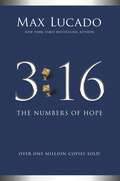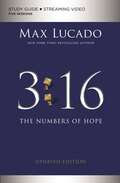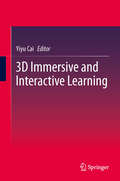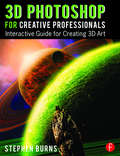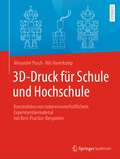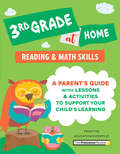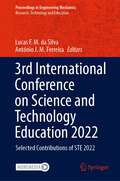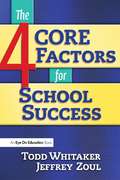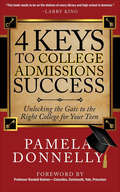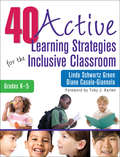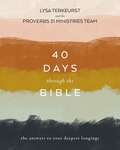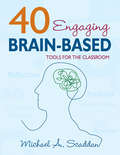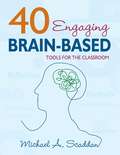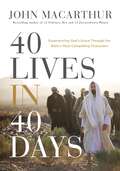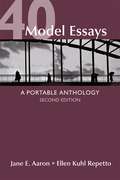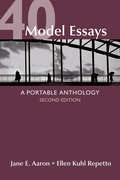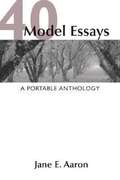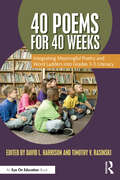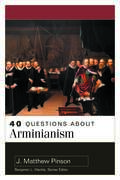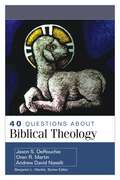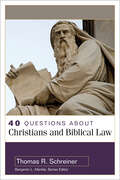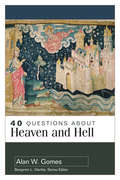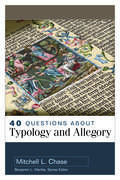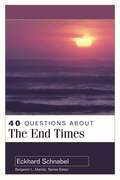- Table View
- List View
3: The Numbers of Hope
by Max Lucado*Now with brand-new content added, one of Max Lucado&’s all-time bestselling books is updated for a new generation!*Sometimes life appears to fall to pieces and can seem irreparable. We&’ve all had our fair share of disappointments, loss, or hardships. But for every challenge there is a breathtaking promise: It&’s going to be okay. How can we know? Because God so loved the world.In 3:16, pastor and New York Times bestselling author Max Lucado encourages us to study closely the &“Hope Diamond of the Bible&”: John 3:16.Max says of his favorite verse, &“Every time I recall these words, they are fresh and as stunning as my first encounter with them. The mind-bending awareness of God&’s limitless love, his incalculable sacrifice, and the priceless teaching at the core. How can we not review it again and again? I want this generation, and all who come after, to look closely at the key promise of God and choose the gift beyond all gifts.&”Throughout this updated and expanded edition of 3:16, Max will invite you to:Stand in awe of how deep, wide, long, and high God&’s love is for youUnderstand more fully the living hope you have through Jesus&’ death and resurrectionRest in the assurance that salvation is a gift from God, not something you can earnIf you know nothing of the Bible, start here. John 3:16 invites you to know God&’s love deeply and intimately. And once you accept God&’s love, your life will never be the same.If you know everything in the Bible, return here. Let John 3:16 become the banner of your life, so much so that the message of God&’s unending and unbending love overflows from you to others.Each copy of 3:16 also includes a 40-day devotional designed to help you draw closer to your loving Savior.
3: The Numbers of Hope
by Max Lucado*Entirely rewritten and re-filmed for a more focused and deeply personal study of the most-loved verse in the Bible—John 3:16.In this updated classic Bible study (video streaming included), bestselling author and pastor Max Lucado pulls back the curtain on his favorite Bible passage to move you to a profound awareness of God's limitless love, His incalculable sacrifice, and the certainty of His offer of eternal life."For God so loved the world that he gave his one and only Son, that whoever believes in him shall not perish but have eternal life." This passage is a twenty-six-word parade of hope. A verse brief enough to write on a napkin or memorize in a moment...and solid enough to weather 2,000 years of storms and questions.With deeply personal accounts of the way this verse shaped Max's own faith journey, this study will reveal the gospel story surrounding the promise and unpack God's plan of restoration from the human problems of sin and death. If you know nothing about the Bible, the promise of John 3:16 is where to start.It's time to live as if you've been "born again", as if you've already been redeemed. It's time to live into the promise, to trust it—so much that this message of God's unending love overflows from you to the world.This video study guide has everything you need for a full Bible study experience, including:The study guide itself—with discussion and reflection questions, video notes, and a leader's guide.An individual access code to stream all five video sessions online (DVD also available separately).Streaming video access code included. Access code subject to expiration after 12/31/2027. Code may be redeemed only by the recipient of this package. Code may not be transferred or sold separately from this package. Internet connection required. Void where prohibited, taxed, or restricted by law. Additional offer details inside.
3D Cinema
by Miriam Ross3D Cinema: Optical Illusions and Tactile Experiences questions the common frameworks used for discussing 3D cinema, realism and spectacle, in order to fully understand the embodied and sensory dimensions of 3D cinema's unique visuality.
3D Immersive and Interactive Learning
by Yiyu Cai3D technology is not new; research on 3D started back in early 1960s. But unlike in previous times, 3D technology has now rapidly entered our daily life from cinema to office to home. Using 3D for education is a new yet challenging task. This book will present several innovative efforts using 3D for immersive and interactive learning covering a wide spectrum of education including gifted program, normal (technical) stream, and special needs education. The book will also share experience on curriculum-based 3D learning in classroom setting and co-curriculum-based 3D student research projects. The book is organized as follows. Chapter 1 introduces the fundamentals of 3D educational technology and their applications in immersive and interactive learning. Chapter 2 discusses the use of virtual reality in teaching and learning of Molecular Biology. Chapter 3 presents the daVinci Lab @ River Valley High School. Chapter 4 describes the 3D education development process. Chapter 5 studies the adaption 3D system for learning gains in lower secondary normal (technical) stream. Chapter 6 investigates the effects of virtual reality technology on spatial visualization skills. Chapter 7 showcases a sabbatical program for students to use 3D for Science, Technology, Engineering and Mathematics (STEM) learning. Chapter 8 shares the use of 3D virtual pink dolphin to assist special education. The foreword of this book is written by Dr Cheah Horn Mun, Director, Education Technology Division, Ministry of Education, Singapore.
3D Photoshop for Creative Professionals: Interactive Guide for Creating 3D Art
by Stephen BurnsPhotoshop is the cornerstone of the graphics industry and understanding its 3D capabilities is becoming a requirement for graphic designers, photographers, and creatives alike. Starting with the fundamental tools and ending with advanced resources, Adobe Community Professional Stephen Burns guides you with a clear voice and creative exercises that encourage you to work as you read. Accompanied by a free app that includes video tutorials, interactive models to compare your activity work from the book against, and on-going updates about the latest Photoshopreleases, this book will elevate your art off the page and into a new world of possibilities. (The app is available for the iPad and iPhone in the iTunes App Store, and Android users can find it through Google Play. Just search for 3D Photoshop on either of these platforms and download it to your device.)
3D-Druck für Schule und Hochschule: Konstruktion von naturwissenschaftlichem Experimentiermaterial mit Best-Practice-Beispielen
by Alexander Pusch Nils HaverkampDieses Buch führt Leserinnen und Leser durch vielfältige Einsatzmöglichkeiten von 3D-Druck und 3D-Konstruktion im Rahmen von naturwissenschaftlicher Lehre an Schule und Hochschule. Im ersten Teil beschäftigen sich die Autoren mit fachdidaktischen Hintergründen, insbesondere mit dem Einsatz von 3D-Druckern in Lernprozessen sowie mit Konstruktionskriterien und schulpraktischen Aspekten. Den Kern des Buches bilden 12 Best Practice-Beispiele zur Konstruktion von physikalischem Experimentiermaterial. Diese Anleitungen sind unterteilt in einfache Schritt-für-Schritt-Anleitungen mit Autodesk Tinkercad, fortgeschrittene Konstruktionen mit Autodesk Fusion 360 sowie Projektaufgaben. Die Bedienung und die Möglichkeiten der beiden verwendeten Programme werden jeweils vorab kurz vorgestellt.Das Buch richtet sich an Studierende des Lehramts, Dozierende, und Lehrkräfte, die sich im Rahmen ihres Unterrichts mit 3D-Druck und 3D-Konstruktion auseinandersetzen möchten. Auch Schülerinnen und Schülern sowie interessierten Laien werden Hilfestellung und Inspiration angeboten, 3D-Objekte zu planen, zu konstruieren und zu drucken. So werden Sie mit diesen Anleitungen unter anderem eine Finray-Zange, eine Magnetfeldsonde, gezinkte Würfel, eine Luftkissenscheibe, ein Katapult und den kleinen Roboter „Borsti 2.0“ konstruieren und drucken können. Die Best Practice-Beispiele im Buch sind auf Grundlage von Anleitungen aus Seminaren entstanden, in denen die Autoren für angehende Physiklehrkräfte Möglichkeiten, Nutzung, Tipps und Tricks vermitteln.
3rd Grade at Home: A Parent's Guide with Lessons & Activities to Support Your Child's Learning (Math & Reading Skills) (Learn at Home)
by The Princeton ReviewLearn at home with help from the education experts at The Princeton Review! 3RD GRADE AT HOME provides simple, guided lessons and activities that parents can use to help keep 3rd graders on track this year.Anxious about remote learning and hybrid schooling? Worried that the unique circumstances around coronavirus and education might keep your child from getting the help they need in class this year? Want to help support your child's schooling, but not sure where to start?You're not alone! 3RD GRADE AT HOME is a parent guide to supporting your child's learning, with help you can undertake from home. It provides: · Guided help for key 3rd grade reading and math topics· Skills broken into short, easy-to-accomplish lessons· Explanations for parents, plus independent question sets for kids· Fun at-home learning activities for each skill that use common household items· Parent tips, review sections, and challenge activities seeded throughout the bookThe perfect mix of parent guidance, practical lessons, and hands-on activities to keep kids engaged and up-to-date, 3RD GRADE AT HOME covers key grade-appropriate topics including:· early reading comprehension · context and understanding· fiction and nonfiction· event order· problem and solution· addition and subtraction· multiplication and division· fractions and decimals· shapes, symmetry, and patterns· probability... and more!
3rd International Conference on Science and Technology Education 2022: Selected Contributions of STE 2022 (Proceedings in Engineering Mechanics)
by Lucas F. M. da Silva António J. M. FerreiraThis volume of the series Proceedings in Engineering Mechanics - Research, Technology and Education provides selected papers presented at the 3rd International Conference on Science and Technology Education, held in Porto, Portugal, October 6-7, 2022. From the various topics covered at this conference, individual contributions have been selected for this book. These contributions focus on learning mechanisms, learning systems and assessment. The book presents the latest trends, new methods and ideas in science and technology education. An essential resource for lecturers and tutors working in this field.
4 CORE Factors for School Success
by Todd Whitaker Jeffrey ZoulThis book clarifies the core values which all great educators have in common and contribute to school success. For all those who want to create better schools, these factors are at the center of behaviors which lead to results. The 4 CORE Factors are Communication, Observation, Relationships, and Expectations.
4 Keys to College Admissions Success: Unlocking the Gate to the Right College for Your Teen
by Pamela DonnellyThe #1 bestselling author and nationally recognized education specialist &“helps parents like you and me optimize the futures of our sons and daughters&” (Larry King). Parenting teenagers is hard enough without feeling locked out of knowing how to apply to and pay for college. With the right information to turn the key, moms and dads can open the gate so their sons and daughters enter successfully into the futures they deserve. Join Pamela Donnelly—founder and CEO of GATE College System—in her humorous, informative trainings on the four mission-critical strategies you must implement in order to position your teen for independence, not codependence. &“This book needs to be on the shelves of every library and high school in America.&” —Larry King &“As a mother of two, I can only imagine the trepidation that lies ahead when the time comes for me to help my daughters navigate their journey into college. When it does, there is no one I trust more than Pamela Donnelly to be our guide. Not only does she offer solid strategies and important information, but her intuition as a mother and her deep heart are invaluable.&” —Marcia Cross, professional actress (Desperate Housewives, Melrose Place)/mom &“Colleges are looking for well-rounded, fully dimensional human beings with the skills and knowledge outlined here. Pamela Donnelly provides invaluable guidance, which she has earned the old-fashioned way. Save yourself a steep learning curve by tapping into her wealth of knowledge.&” —Randall Balmer, PhD, Ivy League professor (Columbia, Dartmouth, Yale)
40 Active Learning Strategies for the Inclusive Classroom, Grades K–5
by Linda S. Green Diane P. Casale-GiannolaEngage all learners with research-based strategies from acclaimed educators Research indicates that students of all ages and demographics benefit from active learning methods. Award-winning educators Linda Schwartz Green and Diane Casale-Giannola connect research and application with more than 40 easy-to-implement strategies for today’s inclusive classroom. This practical guide includes: Field-tested practices that are easily adaptable to various grade levels and subjects Vignettes that demonstrate how to apply today’s brain-compatible strategies in the classroom Tools for differentiating instruction to serve ALL students, including high-ability students, those with ADHD or learning disabilities, and English learners
40 Days Through the Bible: The Answers to Your Deepest Longings
by Lysa TerKeurstFind the better you&’ve been longing for. Lysa TerKeurst, the First 5 team and the Online Bible Studies team have come together to write a Bible study just for YOU! We know the Bible is a big book and can oftentimes feel overwhelming. Lysa and Proverbs 31 team wanted to create a study that would help you understand the story of the Bible from start to finish. In 40 Days Through the Bible: The Answers to Your Deepest Longings, you will:Take a journey through the storyline of the Bible in 40 days so you can see major themes, how they are all connected and what that means for us as we read the Bible today.Discover the eight major things humanity longs for and how Jesus fulfills all of them for us.Stop the endless cycle of seeking and searching for satisfaction and find the answers to your deepest longings.
40 Engaging Brain-Based Tools for the Classroom
by Michael A. ScaddanThis guide converts current findings on brain research into fun and effective techniques for introducing brain-compatible learning and improving test results in the K–12 classroom.
40 Engaging Brain-Based Tools for the Classroom: Tools For The Classroom
by Michael A ScaddanEducators looking for proven methods to introduce brain-compatible instruction into K-12 classrooms will find invaluable assistance in this easy-to-read, engaging resource. The author helps teachers understand how the brain, mind, and body function in the learning process, demonstrates methods to reinforce students' memory and concentration, and illustrates ways to enhance learners' outcomes across a broad range of skills.This flexible guide converts the latest findings on brain research into fun and effective techniques for reducing behavioral distractions in class, improving academic performance, and strengthening teachers' instructional skills. Within a holistic brain-based teaching model, this practical book offers: 40 brain-friendly tools for improving learning and test results A brain-based review feature that helps readers evaluate and modify the tools to meet students' needs Stimulating quotes and motivational proverbs for inspiration Stories, songs, poems, and anecdotes woven throughout the textThis guide is ideal for empowering students and helping them take ownership of their learning.
40 Lives in 40 Days: Experiencing God’s Grace Through the Bible’s Most Compelling Characters
by John F. MacArthurHave you ever wondered why God uses ordinary people to accomplish His work and to spread the good news? Join bestselling author and Bible teacher John MacArthur as he takes a closer look at the everyday lives of the men and women that God trusted to carry His message and lead His people. 40 Lives in 40 Days is a brand-new devotional compilation of MacArthur's extensive studies of the Bible characters who show us that we don't have to be perfect to do God's work. From the twelve disciples to the Samaritan woman, MacArthur shares that Jesus chose average people--fishermen, tax collectors, doubters, political zealots--and gave them a remarkable mission.These encouraging stories, based in Scripture, help shed light on these real men and women who endured struggle, pain, and heartache, just like us. They were perfectly ordinary sinners--living proof of God's kindness--who went on to serve an extraordinary purpose in spreading the gospel.By tracing the lives of these unlikely heroes, MacArthur shows us that the difficulties and temptations that they lived through are the same trials that modern believers face today.Throughout 40 Lives in 40 Days, MacArthur will:Dive deep into the stories of Jesus' earliest disciplesTeach us that God continues to mold and use ordinary people todayShare the surprising ways God accomplishes His purposesProvide an honest look at all of God's peopleHelp you experience God's goodness and graceAs you get to know each of these 40 figures even better, you'll see why the lives they led can still serve as an inspiration to believers today.
40 Model Essays: A Portable Anthology
by Jane E. Aaron Ellen Kuhl RepettoAt about half the price of other rhetorically arranged readers,40 Model Essays: A Portable Anthologycombines concise but thorough instruction in the methods of development with a well-chosen selection of classic and contemporary model readings for writers. The second edition features a fresh mix of new and current selections to complement class-proven favorites; new advice on forming a thesis statement; and a wealth of captivating new writing topics. This volume in the popular Bedford/St. Martin's series of Portable Anthologies and Guides offers a trademark combination of high quality and great value.
40 Model Essays: A Portable Anthology
by Jane Aaron Ellen RepettoCombining concise but thorough instruction in the methods of development with a conscientiously picked selection of classic and contemporary model readings for writers, 40 Model Essays contains advice on forming a thesis statement alongside a wealth of captivating new writing topics to help you succeed.
40 Model Essays: A Portable Anthology
by Jane E. AaronIn response to requests from instructors and students for shorter and less expensive composition readers, this is "40 Model Essays" -- featuring material adapted from the successful "The Compact Reader".
40 Poems for 40 Weeks: Integrating Meaningful Poetry and Word Ladders into Grades 3–5 Literacy
by Timothy V. Rasinski David L. HarrisonWith this anthology of hand-chosen poems written by well-known, beloved poets, you can introduce poetry to your students in the classroom and beyond. Poetry is a powerful tool for teaching phonics, fluency, comprehension, vocabulary, and a love of reading. Curated specifically for students in Grades 3–5, this book contains 40 poems for 40 weeks in the school year, making it easy for teachers and librarians to read the poems sequentially throughout the year, choose them at random, or match a theme with current needs or events. The book eliminates the need to track down poems to read each week, and it provides a reading list of 120 books of poetry, making it one of the richest sources for poetry titles specifically for young students. Along with the poems are word ladders to aid in lessons on word decoding and encoding, vocabulary, and interest in word study. With poetry from award-winning authors and poets laureate, this is an essential resource for teachers and librarians hoping to inspire their students with poetry.
40 Questions About Arminianism (40 Questions series)
by J. Matthew PinsonThe actual life and teaching of Jacobus Arminius are often unknown or misunderstood across many Protestant traditions. Answers beyond a basic caricature can be elusive. What are the essential historical backgrounds of Arminianism, and what theological teachings connect to the Arminian point of view? Mixing solid historical research with biblical and doctrinal precision, Baptist scholar J. Matthew Pinson clarifies the foundations of this influential tradition.40 Questions About Arminianism addresses the following questions and more:• Who was Jacobus Arminius?• How has the church interpreted God’s desire that everyone be saved?• How is Arminianism different from Calvinism?• Can one be both Reformed and Arminian?• What is “universal enabling grace”?• What do Arminians mean by “free will”?• Do Arminians believe that God predestines individuals to salvation?• Is it possible for a Christian to apostatize?An accessible question-and-answer format helps readers pursue the issues that interest them most and encourages a broad understanding of historic and contemporary Arminianism, with additional resources available at 40questions.net.
40 Questions About Biblical Theology (40 Questions Series)
by Andrew David Naselli Oren R. Martin Jason S. DeRouchieTo understand what the entire Bible teaches about any given subject, we must practice biblical theology. By surveying the whole canon of Scripture, we can best discern what God has revealed about any particular issue. But doing so requires answering a number of important questions: - What type of biblical theology will we choose? - What overall story does the Bible tell? - How should we understand the relationship between the Old and New Testaments? - How does our topic fit within salvation history? - How do we apply the truths we discover? 40 Questions About Biblical Theology provides resources to answer these key questions in order to guide readers in their own study and practice of biblical theology. Other vital topics the authors address include how to understand typology, key themes in biblical theology, and how Christians should relate to Old Testament promises. Ideal for courses on biblical theology, for pastors, and for anyone who teaches or interprets Scripture, 40 Questions on Biblical Theology will deepen your understanding and application of the whole counsel of God.
40 Questions About Christians and Biblical Law (40 Questions Series)
by Thomas R. SchreinerThis volume by Dr. Thomas R. Schreiner on the interplay between Christianity and biblical law is an excellent addition to the 40 Questions & Answers series. Schreiner not only coherently answers the tough questions that flow from a discussion about the Old Testament Levitical Law, but also writes clearly and engagingly for the student. The pastor, student, and layperson can easily understand Schreiner's biblical theology of the Law. The reader will enjoy the clarity and encouragement of 40 Questions About Christians and Biblical Law. The simple Q&A format allows readers to skip to questions of interest. Questions include: - What does the word law mean in the Scriptures? - Was the Mosaic covenant legalistic? - Does the OT teach that salvation is by works? - What does the expression "works of law" mean in Paul? - Is perfect obedience to the law mandatory for salvation? - Does Paul teach that the OT law is now abolished? - What does Paul mean by "righteousness of God?" - Does the Pauline teaching on justification contradict Jesus' message? - Do James and Paul contradict one another on justification by works? - How should we understand the role of the law in Luke-Acts? - What is theonomy, or Christian reconstructionism, and how should it be evaluated? - What role does the law have in preaching?
40 Questions About Heaven and Hell (40 Questions Series)
by Alan W. GomesIn 40 Questions About Heaven and Hell, Alan Gomes surveys the Old and New Testaments to present a comprehensive picture of the afterlife. The question-and-answer format makes it easy to find answers to specific questions on heaven, hell, the intermediate state, the final judgment, and life in eternity. Readers will find solid answers to many vital questions:What should we conclude about those who claim to have seen heaven or hell?Is it possible for us to communicate with the dead?Is there such a place as purgatory?What will our resurrected bodies be like?What will we do in the eternal state?Will there be animals in the eternal state?What is hell like?How can a God of love send people to an eternal hell?Did Jesus "descend into hell" like the Apostles' Creed says?Study notes point to additional resources for learning, and reflection questions at the end of each chapter make the book ideal for small group studies.
40 Questions About Typology and Allegory (40 Questions Series)
by Mitchell L. ChaseA survey of two literary devices that are indispensable for understanding salvation historyA biblical type is a person, place, or thing in salvation history that corresponds to a later person, place, or thing in the scriptural text. An allegory is a passage that says one thing in order to say something else. Both are common literary devices in the Bible that are vital for understanding truths about Jesus Christ found nowhere else.In 40 Questions About Typology and Allegory, Mitchell Chase provides a thorough introduction to both devices, showing where they appear throughout Scripture and the historical roles they have played in biblical interpretation. In a convenient question-and-answer format, Chase answers key questions such as: •Why should interpreters care about typology and allegory? •How do we identify types? •What are the theological assumptions of typology? •Do all types lead to Christ? •What is allegorical interpretation? •How was allegory practiced in the early church? •How should we practice allegorical interpretation?Situating typology and allegory within salvation history, Chase shows how these devices reveal the interconnectedness of Scripture and commonly overlooked aspects of Christ's person and work. Scholars, Bible teachers, and preachers will find this an essential resource for interpreting Scripture more comprehensively.
40 Questions About the End Times (40 Questions Series)
by Eckhard SchnabelThis newest contribution to the 40 Questions series continues the tradition of excellent research presented in accessible language and clear writing. Designed for both students and general readers, this resource helps them make sense of one of the Bible's most difficult topics. Eckhard Schnabel, a professor at a leading seminary and the author of several major works, looks at the future of the world, the church, and Israel; the return of Jesus; and the millennium and the final judgment. He answers questions related to the rapture, the 144,000, the identity of the two witnesses, Armageddon, how to interpret Revelation, heaven and hell, and so forth. The result is an even-handed treatment that avoids sensationalism and a "newspaper headline" approach to prophecy, that is, interpreting prophecy according to current events. Rather, Schnabel carefully studies the biblical text in light of its first-century context and draws biblically-based conclusions.
